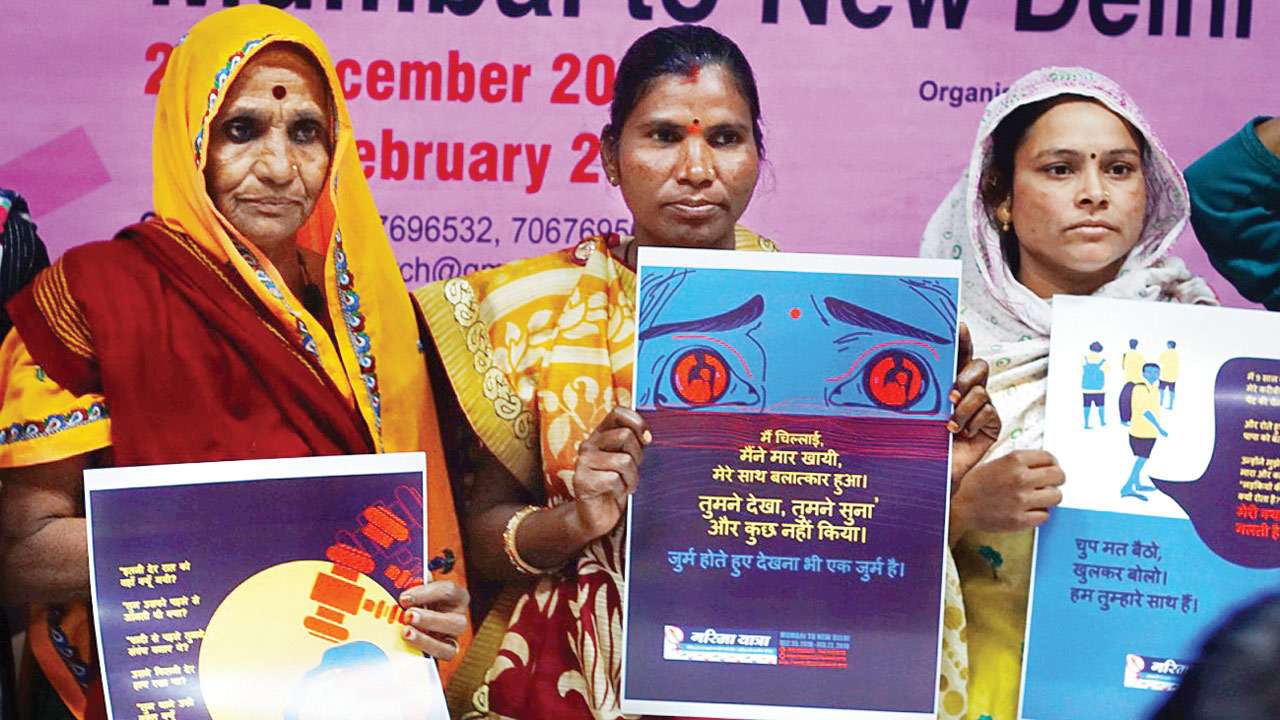Over 1,000 women, activists to march to Delhi for their dignity

Dignity March Survivors Bhanwari Devi, Urmilla and Kiran at the march on Wednesday
Dignity March, a two-month-long cross-country march by survivors of sexual violence, that's aimed at taking forward the #MeToo movement, will start on Thursday. The march, being organised by the Rashtriya Garima Abhiyan, will see survivors and their family members travel across 20 states, engaging with survivors and other stakeholders, before culminating in Delhi on February 22.
"In a recent survey, we found that 95 per cent of the victims did not report the incident, mainly due to social stigma. When referring to these incidents, people avoid using the word 'rape'. Death sentence to the perpetrator is not the solution; society needs to be sensitised. We aim to end victim shaming by society," said Ashif Shaikh, social activist and convener of Rashtriya Garima Abhiyan, a coalition of organisations working for rights of Dalits, women and manual scavengers.
Around 1,000 women are expected to participate in the walk, which will be organised with the help of over 100 NGOs, and will pass through large and small towns. While some members will travel the entire route, others are expected to participate in events in their respective cities. Meetings with survivors, police and other stakeholders will be held in all cities. Minor victims will be accompanied by their parents in the march, in which the survivors will walk within city limits, and travel by bus on highways.
Prominent activists like Bhanwari Devi have already expressed their support to the cause. "I will walk for all the women who have suffered. I want to tell everyone that they shouldn't stay silent. We should be loud enough to awaken the establishment," said Bhanwari Devi, gang-rape survivor whose case shaped the women's movement in India and led to the landmark Vishakha judgment.